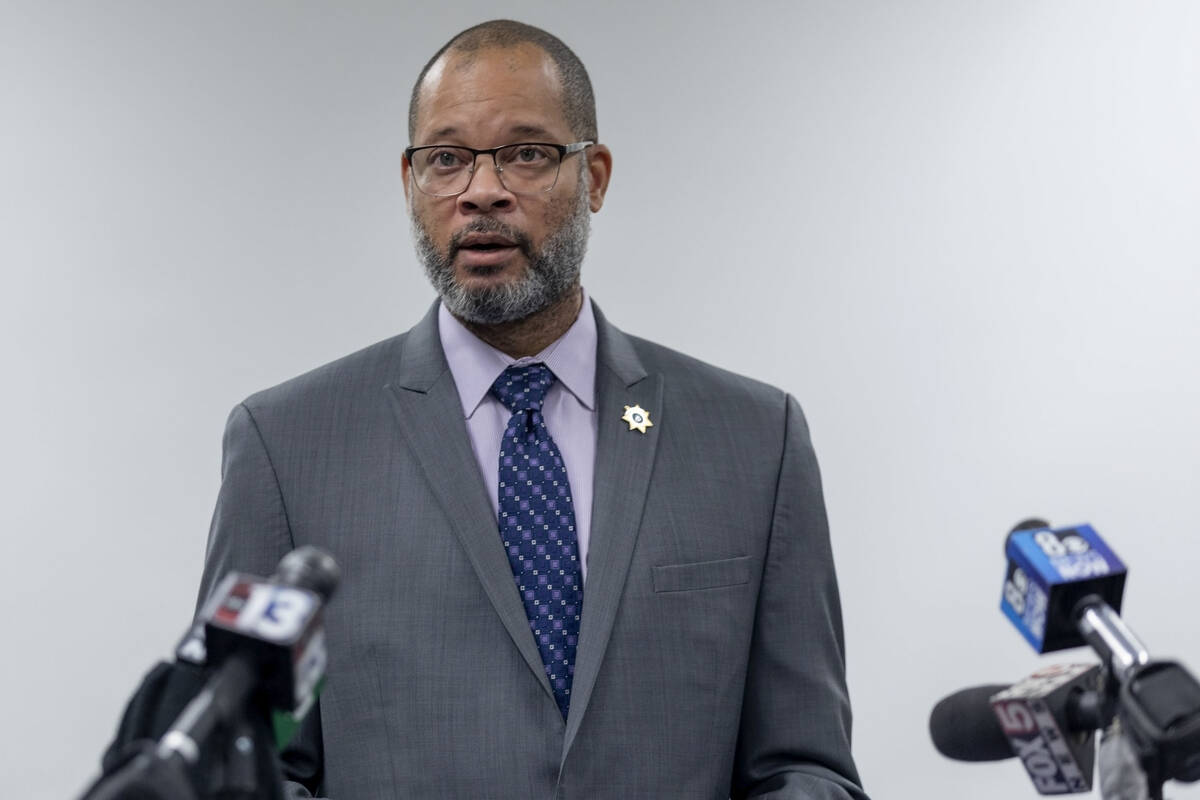Attorney general discusses initial payment from opioid settlements

As Nevada’s opioid epidemic worsens, state and local officials are hoping an influx of funds from recent settlements with drug companies will help blunt the blow.
Nevada is set to receive the first tranche of funds from $285.2 million awarded through multistate settlements with opioid distributors and manufacturers, with $50.7 million million of it expected as early as this week.
“With this money, Nevada can and will establish programs and services that are needed right now,” Attorney General Aaron Ford said during a press conference Monday. “Every day without these services is a day the problem continues to get worse.”
Nevada has been one of the states hardest hit by the opioid epidemic, Ford said. Opioid-related deaths in Nevada spiked by 40 percent in 2020, killing 484 Nevadans — the highest one-year figure on record for the state. Deaths related to fentanyl, a synthetic opioid described as being up to 100 times stronger than morphine, have seen a dramatic spike in recent years, surging 227 percent from 2019 to 2020, according to the state’s Division of Public and Behavioral Health.
The Department of Health and Human Services is creating an assessment plan to determine the programs and services needed in each area of the state. That plan will guide the state in developing its funding strategy. Dawn Yohey from the state health department said that the assessment will be finalized in May and they expect to allocate the money to the communities by the end of summer or early fall.
Ford’s office initially opted out of some of the multistate settlements reached in July with drugmaker Johnson & Johnson and distributors McKesson, AmericsourceBergen and Cardinal Health. But Nevada rejoined the settlements following court rulings in other states as well as the reversal of a bankruptcy settlement with OxyContin manufacturer Purdue Pharma.
Nevada also received $45 million after a settlement agreed to last year with consulting firm McKinsey & Co. for the company’s role in the epidemic.
Ford said that he believes the settlements will force the drug companies to change their behaviors. He noted that as part of the settlements the state will receive reports that will allow it to ensure that the companies are complying with the settlement terms.
Ford was joined Monday by several local government officials, including Las Vegas Mayor Carolyn Goodman, Clark County Commissioner Marilyn Kirkpatrick and North Las Vegas Councilwoman Pamela Goynes Brown, to highlight the cooperation between state and local jurisdictions in addressing the opioid issue.
Under a 2021 agreement, the state shares the settlement payments with 29 local government entities. After fees paid to outside attorneys, the state’s share is 44 percent with localities sharing 39 percent and counties dividing the remaining 17 percent, based on the state’s share of Medicaid claims payments in each jurisdiction.
Kirkpatrick said that she has seen the opioid problem first hand and the lack of resources locally that have exacerbated it. She said her daughter has struggled with a meth addiction, which caused Kirkpatrick to raise her 7-year-old granddaughter. She had to send her daughter out of state for treatment “because we had no resources here,” Kirkpatrick said.
“This additional money, both that the counties and the cities get and the state get, will actually be able to put some real infrastructure in to provide that case management,” Kirkpatrick said.
There’s still more litigation to come in Nevada’s fight against the drug companies. A trial date for the others named in the 2019 lawsuit is set for April 17, 2023.
Ford’s former law firm, Eglet Adams, was chosen as outside counsel from a pool of nine other firms by a seven-member selection committee to help the state argue the case. Ford recused himself from the selection process.
Contact Colton Lochhead at clochhead@reviewjournal.com or 702-383-4638. Follow @coltonlochhead on Twitter.